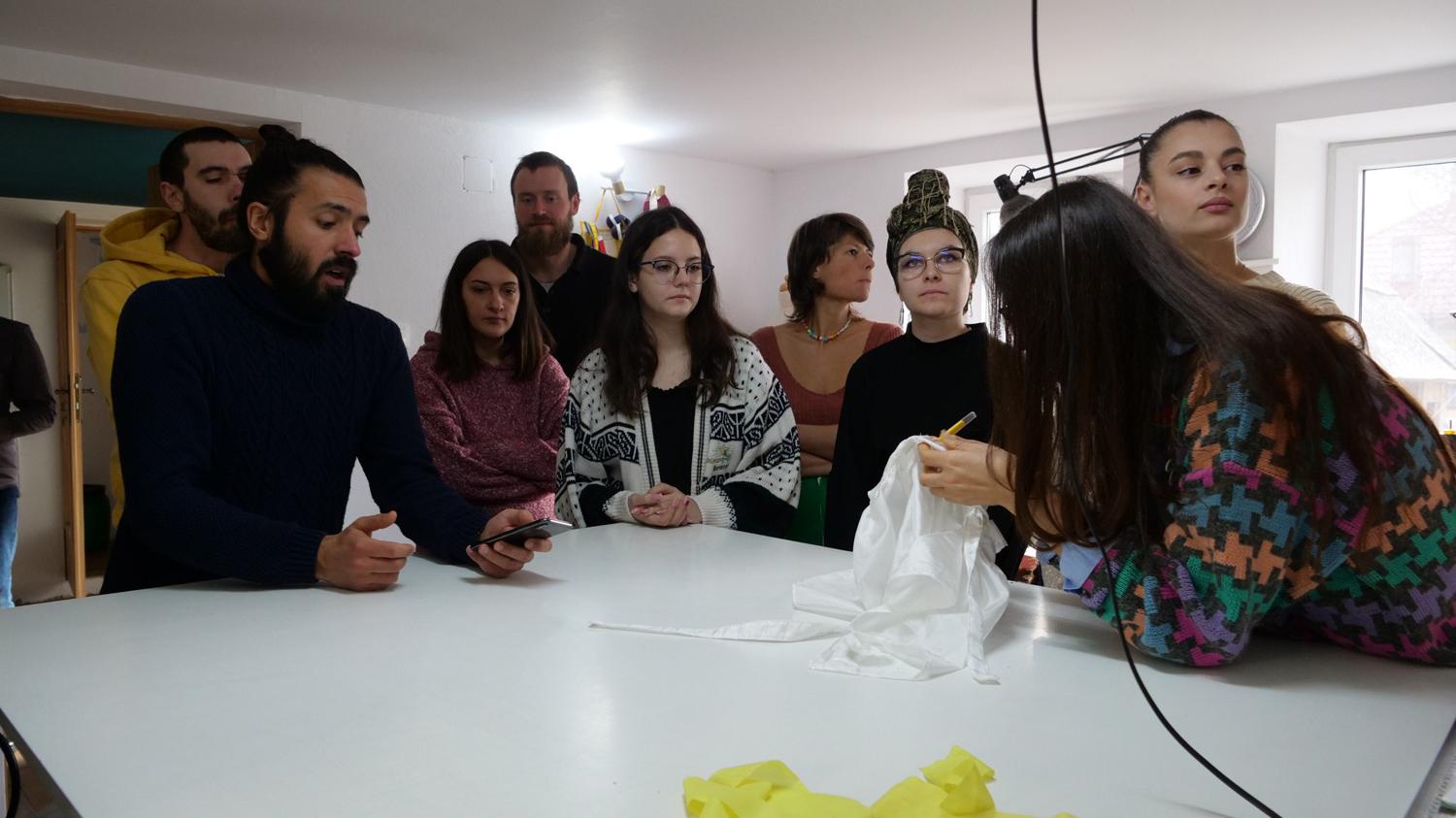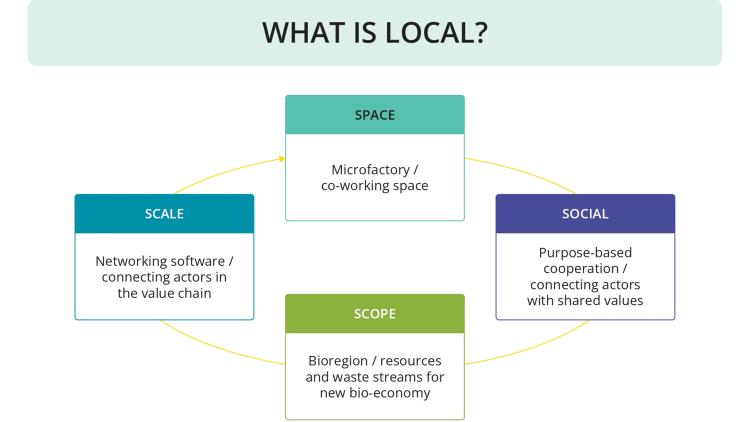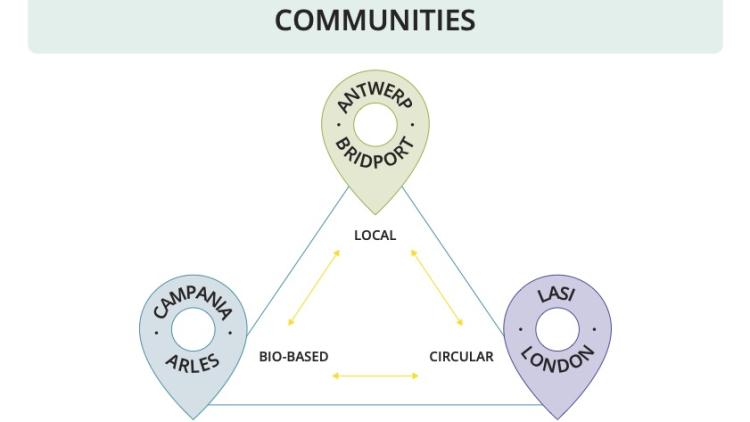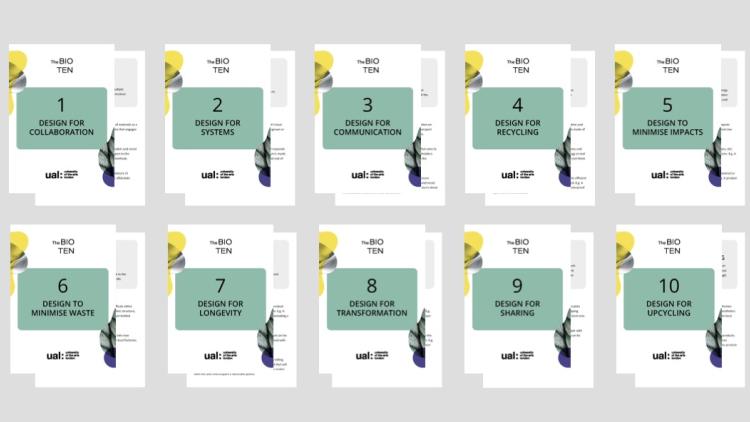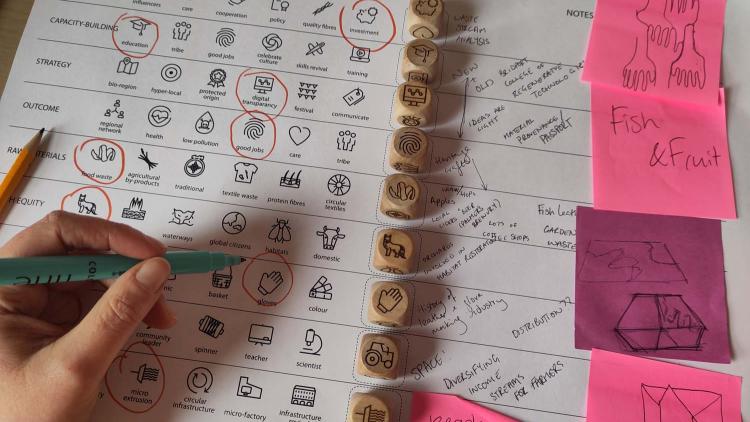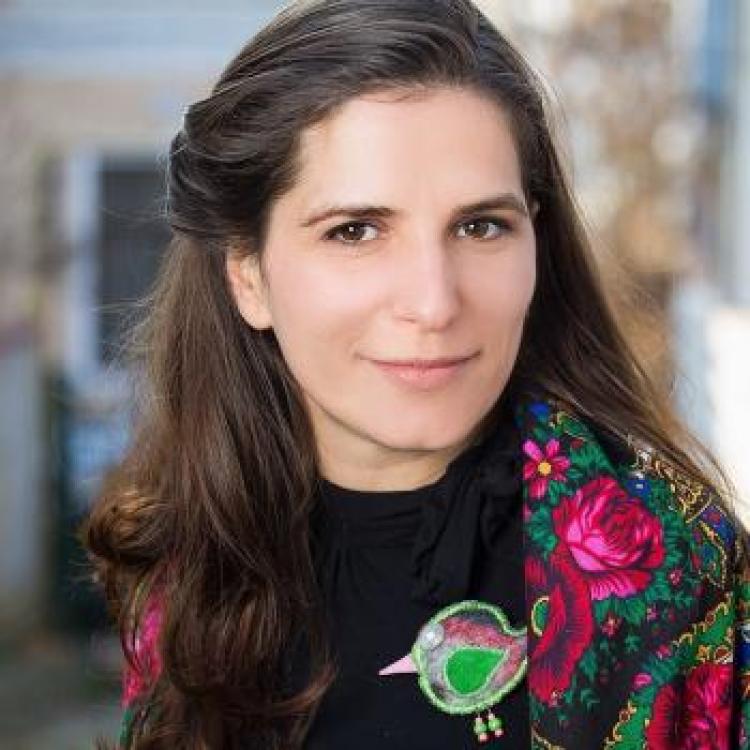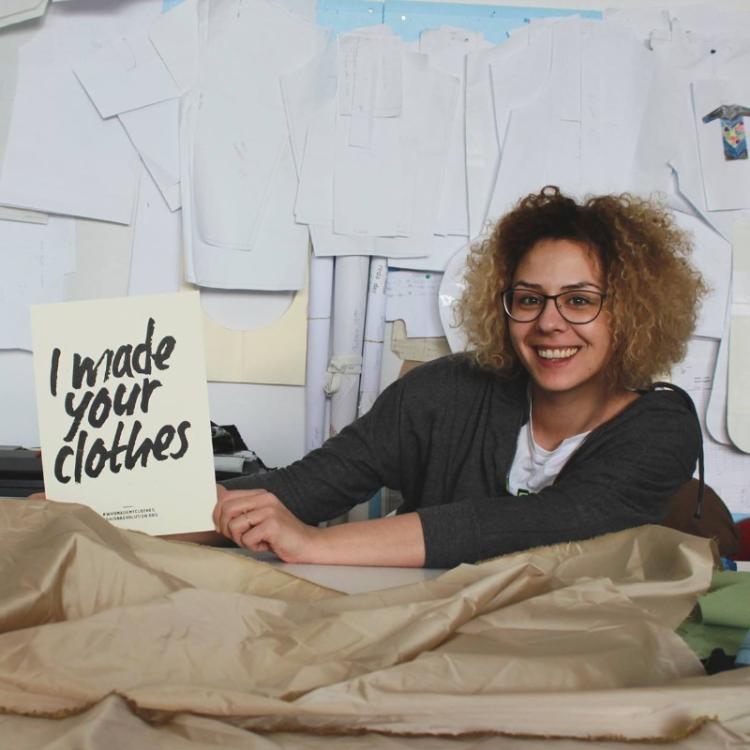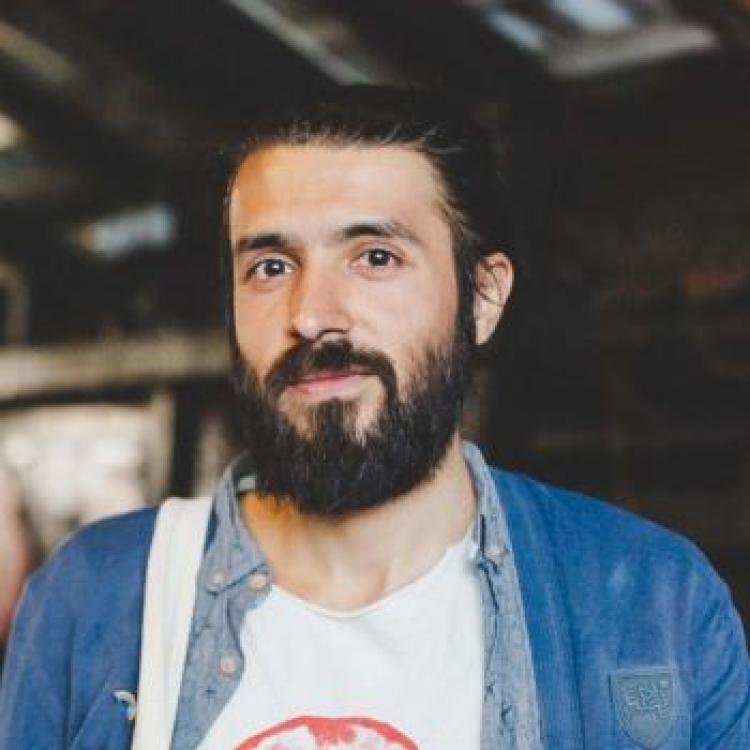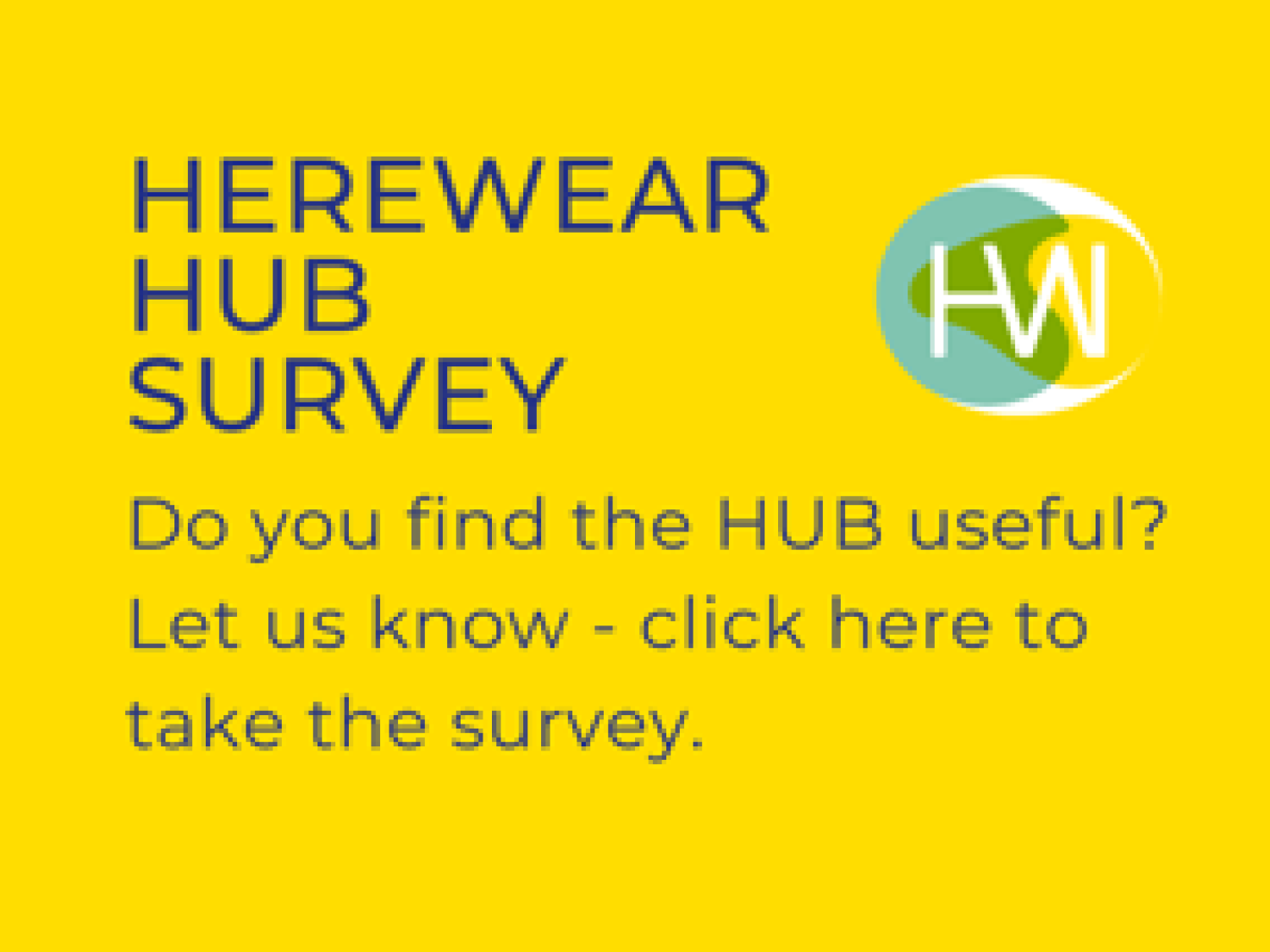Social and Circular
The 'Social and Circular' model promoted by the HEREWEAR project integrates social enterprises with textile supply chain businesses to foster a sustainable and equitable textile industry. This approach acknowledges the intertwined nature of social and environmental issues and aims to create a production model that benefits both people and the planet.
The Social Dimension
The social dimension of the HEREWEAR project emphasizes the importance of fair labor practices and community engagement within the textile industry. It addresses the high social stress prevalent in various stages of the supply chain, including harvesting, sewing, and finishing, which are often associated with low-paid jobs and modern slavery.
By integrating social enterprises into the textile supply chain, the HEREWEAR project aims to:
- Ensure Fair Wages and Safe Working Conditions: Social enterprises prioritise fair compensation and safe, ergonomic working environments, which are seen as essential for a truly sustainable textile industry.
- Support Vulnerable Populations: By providing job opportunities and training for marginalised groups, social enterprises help integrate young people, those distant from the labour market, and other vulnerable individuals into the workforce.
- Revive Local Communities: The model aims to regenerate communities affected by industrial decline, such as small towns previously dependent on now-closed factories. Technological advancements and simplified production processes play a significant role in this regeneration.
- Preserve Traditional Craftsmanship: Social enterprises contribute to safeguarding cultural heritage by promoting artisanal textiles and traditional craftsmanship.
The Circular Dimension
The circular dimension of the HEREWEAR project focuses on creating closed-loop systems where materials are reused, or remanufactured, to minimise the final waste and promote biodegradability. This involves:
- Local Sourcing and Production: Emphasizing the use of locally sourced, bio-based materials to reduce transportation emissions and support local economies.
- Resource Efficiency: Implementing processes that maximize the use of resources, such as using agricultural residues and other waste materials to produce fibres, dyes, and chemicals.
- Innovative Remanufacturing: Developing new methods to upcycle textile waste into new products, thereby reducing the need for virgin materials and minimizing landfill use.
- Industrial Symbiosis: Promoting collaborations among local businesses to use each other’s by-products, enhancing resource efficiency and creating synergies that benefit the entire community.
Making it Happen
The HEREWEAR project promotes the 'Social and Circular' model by fostering collaboration among various stakeholders, including social enterprises, local businesses, regional authorities, and civil society. This involves:
- Building Local Value Chains: By connecting different actors in the textile supply chain within a region, HEREWEAR creates integrated and sustainable value chains that enhance local economic resilience.
- Encouraging Co-Creation: Stakeholders participate in a co-creation process to develop and implement sustainable practices tailored to their specific regional contexts.
- Education and Awareness: Social enterprises play a crucial role in educating consumers and communities about sustainable practices and the importance of social equity in the textile industry.
- Promoting Transparency: Ensuring that all practices within the supply chain are transparent, allowing consumers to make informed choices and fostering trust in sustainable products.
Key learnings to play social first
- Have a vision to create sustainable and socially responsible textile networks.
- Aim to balance social benefits with economic realities and efficiency.
- Think social impact and use technology wisely, and as an ally.
- Maintain the momentum in the community, despite turbulences.
- Embed your vision in a learning and awareness culture.
What to do next
Suggested reading & viewing
Find out about MAIBINE’s ressources and guides for transitioning to more sustainable futures https://www.maibine.eu/resurse

